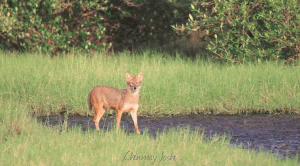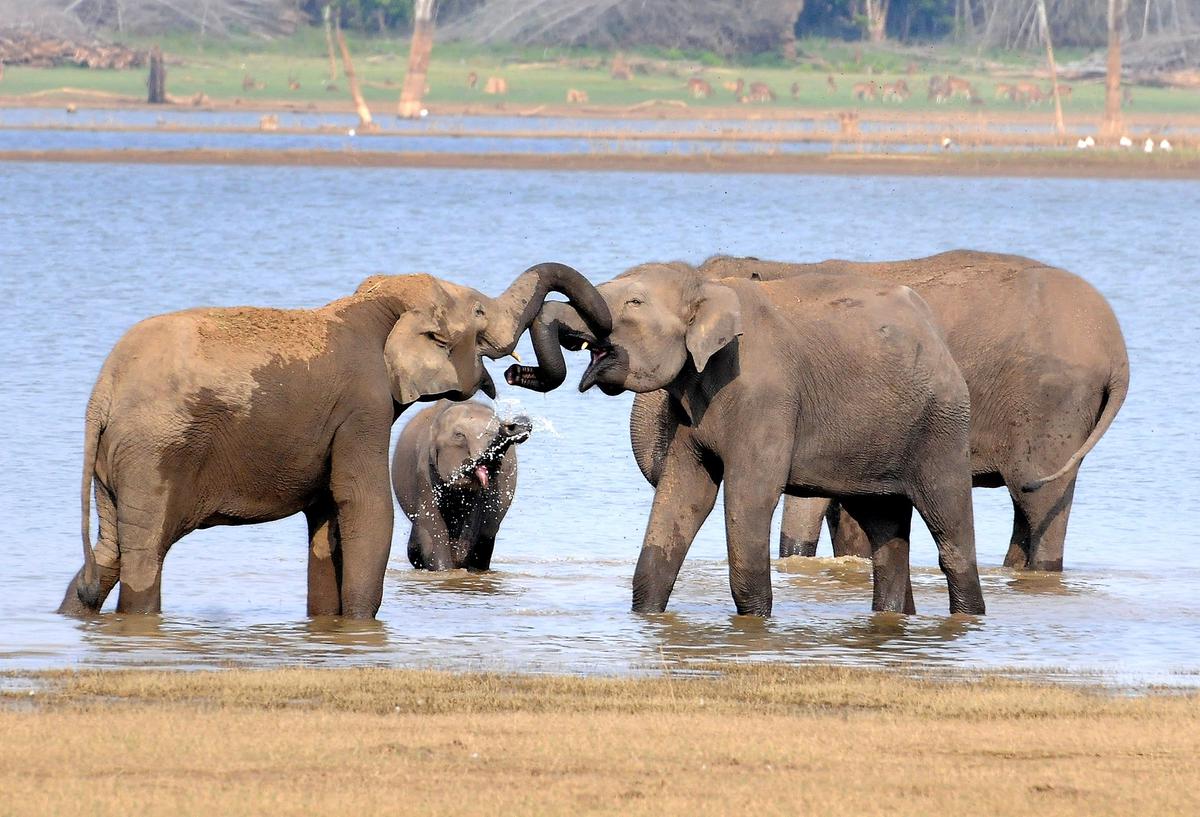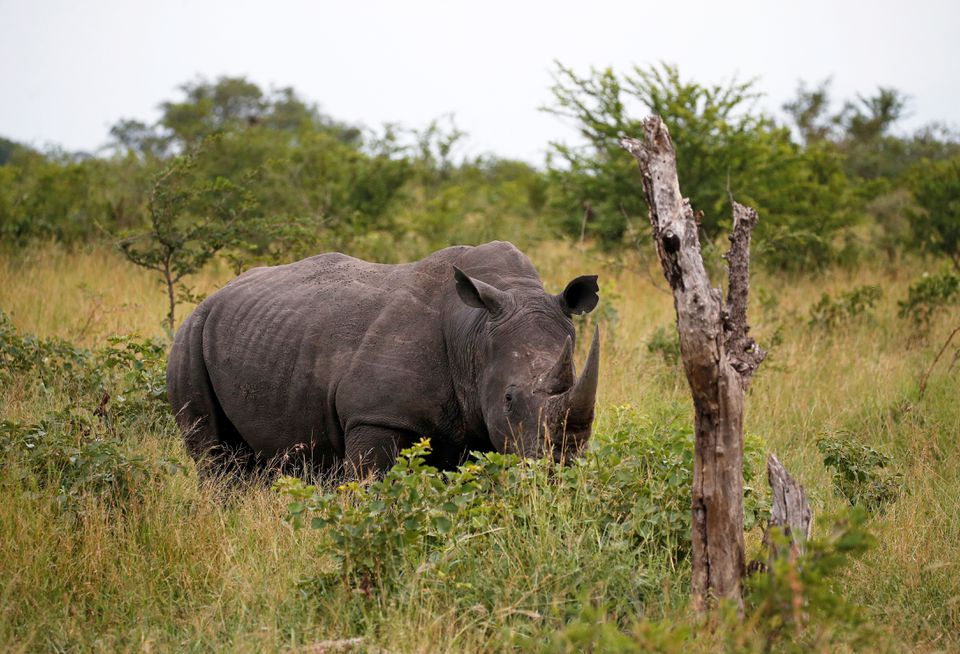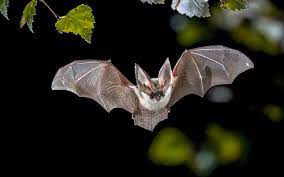- Six Reasons To Bring Millets To The Market!
- Hong Kong Court Makes Landmark Ruling Protecting Transgender Rights
- Substrate Promiscuity Of Fungi Generated Enzyme Laccase Shows Potential In Degrading Industrial Dye Effluents
- Union Minister Of Rural Development Holds A Meeting On ‘Cactus Plantation And Its Economic Usage’
- Ministry Of Tribal Affairs Organised One Day Mega Health Camp ‘Abua Bugin Hodmo-Our Better Health’ At Saraikela Kharsawan, Jharkhand
- Blue Flag Standards For Beaches In The Country
- India-Namibia Sign An MoU On Wildlife Conservation And Sustainable Biodiversity Utilization
- Hydrophobic Ingredients, In Combination With Obsolete Antibiotics, Can Counter Multidrug-Resistant Bacteria
- Promoting Cultivation Of Kala Namak Paddy
NGO proposes to conduct census of jackals in mangroves across city
Posted by: 2018-06-01 20:04:22 ,By Admin

Last month, a golden jackal was killed in an accident on the Eastern Express Highway. It was the fourth incident of human-jackal conflict in the city this year.
While the forest department estimates that around 12 jackals live in the city, there has been no official census or any attempt to study their habitat. Resqink Association for Wildlife Welfare (RAWW), a city-based NGO, has submitted a proposal to the mangrove cell of the Forest department to conduct a study.
“Being one of the animal rescue organisations in the central suburbs we have been working with these animals for many years now. We know that they are found in the mangroves but we have very little scientific data about them. So far major attention has been on the leopards and Sanjay Gandhi National Park (SGNP) and the mangrove area and other areas in the city have not been explored yet. The urban wildlife will give us new and interesting facts,” said Pawan Sharma, honorary wildlife warden of Thane and president of RAWW.
Protected under schedule II of the Wildlife Protection Act, 1972, jackals are known to frequent mangrove areas in search of crabs and other marine species. Set apart from the wolves by their golden brown coat, they are generally found in packs in the mangrove patches in Vikhroli, Thane, Airoli and on the western side in Gorai and Kandivali.
“The jackal is one of the important components of the Mumbai Metropolitan Region (MMR) mangrove ecosystem and a unique and unusual addition to a typical urban biodiversity. Their presence in the mangroves assuredly indicates the richness of the habitat. The presence of jackals has been reported from 1913, and it has managed to survive the urban onslaught,” reads the proposal.
N Vasudevan, additional principal chief conservator of forest, state mangrove cell, said: “The jackals are the only mammal species in the mangrove forests and their population is declining. Urban areas are not their natural habitat and so we need to provide them a proper habitat. They must be getting some food in the mangrove patches here. It will be worthwhile studying them and we will examine the proposal.”
The proposal also hints at a possible local extinction in the absence of timely research. According to the proposal, in the last year — from May 1, 2017 to August 31, 2017 — six incidents of human- jackal conflicts were reported from Mumbai, in which two jackals died. While this points to a dwindling population, the sightings of the animal have reportedly increased over the years.
“Due to loss of habitat and mangrove cover they are being spotted more often. It also needs to be studied as other factors like a reduction in their prey base or any relation with the stray dog population could also be at play here,” said Chinmay Joshi, a zoologist and also a member of the research team.
Set to be a year-long project costing Rs 4,07,899, the study will include direct and indirect sightings to observe and document their behaviour, estimate the area used by a single animal and also by a pack. “In the initial stages we will only do ground work with periodical field surveys of accessible areas with the forest department. If we get good leads, then we can also suggest radio collaring of the animals to the mangrove cell,” Sharma said.
Read more: Click Here
You may like similar news

Mitigating human-elephant conflict key challenge this World Elephant Day
World Elephant Day will be celebrated on Friday bringing into focus the challenging task of ensuring...

India-Namibia sign an MoU on wildlife conservation and sustainable biodiversity utilization
Government of India and Government of the Republic of Namibia have entered into a Memorandum of Unde...

After 40 years of extinction, rhinos return to Mozambique
JOHANNESBURG, July 4 (Reuters) - Over four decades after they became extinct locally, rhinos are roa...

ZSI scientists find a new eel species from Midnapore
Scientists of Estuarine Biology Regional Centre, Zoological Survey of India have discovered a new sp...

International Bat Appreciation Day: Why bats are important for Earth’s ecosystems
Established by Bat Conservation International, International Bat Appreciation Day is celebrated on 1...









